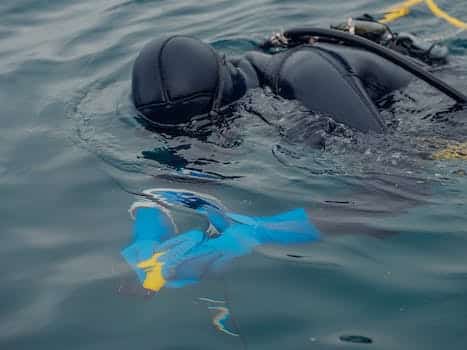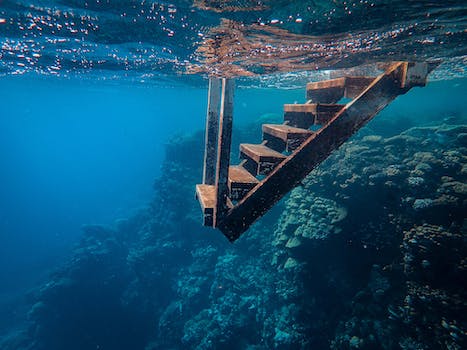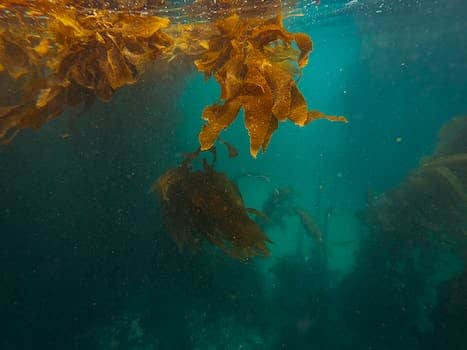Remote islands offer some of the best opportunities for snorkeling and scuba diving. With crystal clear waters and diverse marine life, these destinations are a dream come true for water enthusiasts. In this article, we will explore the top 10 remote island activities for snorkeling and scuba diving, perfect for those who crave adventure and exploration beneath the waves.
- 1. Overview of Remote Island Activities
- 1.1. Introduction to Remote Island Activities
- 1.2. Benefits of Engaging in Remote Island Activities
- 1.3. Top Remote Island Activities to Try Out
- 2. Snorkeling in Remote Islands
- 2.1. What is Snorkeling?
- 2.2. Benefits of Snorkeling in Remote Islands
- 2.3. Preparing for a Snorkeling Trip in Remote Islands
- 2.4. Top Remote Islands for Snorkeling
- 2.5. Safety Tips for Snorkeling in Remote Islands
- 3. Scuba Diving in Remote Islands
1. Overview of Remote Island Activities
Remote islands offer some of the best opportunities for snorkeling and scuba diving in the world. With crystal-clear waters, diverse marine life, and stunning coral reefs, these destinations are ideal for anyone looking to explore the underwater world. Whether you’re an experienced diver or a beginner, there are plenty of activities to suit all levels. From swimming with sharks and turtles to exploring shipwrecks and underwater caves, there’s always something new to discover. In this article, we’ll take a look at the 10 best remote island activities for snorkeling and scuba diving.
1.1. Introduction to Remote Island Activities
Remote islands offer some of the best opportunities for snorkeling and scuba diving in the world. With crystal clear waters and diverse marine life, these islands are a popular destination for adventure seekers and nature enthusiasts. Whether you are a beginner or an experienced diver, there are plenty of activities to keep you entertained. From exploring colorful coral reefs to swimming with exotic sea creatures, remote island activities are sure to leave you with unforgettable memories.
1.2. Benefits of Engaging in Remote Island Activities
Engaging in remote island activities can be a truly unique and unforgettable experience. There are many benefits to exploring the underwater world through snorkeling and scuba diving. For one, it allows you to witness a completely different ecosystem that is often teeming with life and vibrant colors. Additionally, being in the water and moving with the current can be incredibly calming and meditative. It’s a great way to disconnect from the stress of daily life and connect with nature. Finally, snorkeling and scuba diving can be a fun and adventurous way to challenge yourself and try something new.
1.3. Top Remote Island Activities to Try Out
Remote islands offer incredible opportunities for snorkeling and scuba diving. The crystal-clear waters and vibrant marine life make these activities a must-try for any island visitor. Whether you’re a beginner or an experienced diver, there are plenty of options to choose from. Here are the top remote island activities to try out:
2. Snorkeling in Remote Islands
One of the best activities to enjoy on remote islands is snorkeling. The crystal clear waters surrounding these islands provide an ideal environment for snorkeling enthusiasts. Snorkeling in remote islands offers a chance to explore the beautiful underwater world and witness the vibrant marine life in its natural habitat. Whether you are a beginner or an experienced snorkeler, there are plenty of spots to discover. From shallow coral reefs to deep underwater caves, remote islands have it all.
2.1. What is Snorkeling?
Snorkeling is a popular water activity that involves swimming at the surface of the water while wearing a diving mask and a snorkel tube. This allows the snorkeler to see the underwater world and observe marine life without having to hold their breath or use scuba gear. Snorkeling is a great way to explore the ocean and is suitable for all ages and skill levels. It is also a low-impact activity that is environmentally friendly, making it a great choice for eco-tourists.
2.2. Benefits of Snorkeling in Remote Islands
Snorkeling in remote islands is an incredible experience that offers a wide range of benefits. For starters, it allows you to explore some of the most pristine and untouched coral reefs in the world. These remote islands are often far from human civilization, which means that the marine life is abundant and unspoiled. Additionally, snorkeling in remote islands is a great way to escape the crowds and enjoy a peaceful and relaxing vacation. You can take your time exploring the underwater world without feeling rushed or crowded. Snorkeling in remote islands is also a fantastic way to connect with nature and appreciate the beauty of the ocean. It’s an activity that can be enjoyed by people of all ages and skill levels, making it a great option for families or groups of friends.
2.3. Preparing for a Snorkeling Trip in Remote Islands
Preparing for a snorkeling trip in remote islands requires some specific planning and preparation. First and foremost, it is important to research the destination and climate to ensure that you pack appropriately for the trip. You will also want to make sure that you have all necessary snorkeling gear, including a mask, fins, and snorkel. It may be helpful to invest in a high-quality wetsuit to protect against jellyfish stings or cold water temperatures. Additionally, it is important to practice proper snorkeling techniques and safety measures, such as staying close to a buddy and avoiding touching or disturbing the marine life. By taking these steps, you can ensure a safe and enjoyable snorkeling experience in remote island destinations.
2.4. Top Remote Islands for Snorkeling
Snorkeling in remote islands is a dream come true for many ocean enthusiasts. These isolated destinations offer a unique opportunity to explore some of the most untouched and pristine marine environments in the world. Here are the top remote islands for snorkeling:
1. Palau: This Micronesian island nation boasts some of the best snorkeling and diving in the world, with crystal-clear waters and an abundance of marine life.
2. Maldives: The Maldives are home to some of the most beautiful coral reefs in the world, offering a kaleidoscope of colors and marine life to discover.
3. Fiji: Fiji’s remote islands are known for their vibrant coral reefs and diverse marine life, making it a popular destination for snorkelers and divers alike.
4. Bora Bora: This French Polynesian island is famous for its turquoise lagoon and colorful marine life, including rays, sharks, and tropical fish.
5. Seychelles: The Seychelles’ remote islands are a haven for snorkelers and divers, with clear waters and an abundance of marine life, including turtles, rays, and colorful fish.
Whether you’re a seasoned snorkeler or a beginner, these top remote islands for snorkeling are sure to offer an unforgettable underwater experience.
2.5. Safety Tips for Snorkeling in Remote Islands
When snorkeling in remote islands, safety should always be a top priority. Here are some tips to keep in mind:
1. Always wear a life jacket or buoyancy aid.
2. Snorkel with a buddy, never alone.
3. Check the weather forecast before heading out.
4. Be aware of any potential hazards, such as strong currents or sharp rocks.
5. Never touch or disturb marine life.
6. Stay hydrated and avoid alcohol before and during snorkeling.
7. Start slowly and don’t push yourself too hard.
By following these safety tips, you can have a fun and enjoyable snorkeling experience while also staying safe.
3. Scuba Diving in Remote Islands
Scuba diving in remote islands is a unique and unforgettable experience. These islands offer some of the most pristine and untouched diving sites in the world. From exploring vibrant coral reefs to encountering rare marine species, remote island diving is a must-try for any diving enthusiast. However, be prepared to travel far and wide as these islands are often located in the middle of the ocean, far from civilization. But the journey is worth it as the rewards of diving in these secluded locations are unparalleled.
3.1. What is Scuba Diving?
Scuba diving is an activity that involves underwater diving using self-contained underwater breathing apparatus (SCUBA). It allows divers to explore the depths of the ocean and observe marine life up close. Scuba diving is a popular recreational activity, as well as a profession for some who work in fields such as marine biology, underwater photography, and commercial diving. It requires proper training and equipment to ensure safety, but for those who are certified, it offers a unique and exciting way to experience the underwater world.
3.2. Benefits of Scuba Diving in Remote Islands
Scuba diving in remote islands offers a unique and thrilling experience for adventurers. The crystal-clear waters and diverse marine life make it an ideal destination for scuba divers seeking an unforgettable experience. The peacefulness and seclusion of remote islands provide a relaxing atmosphere that makes scuba diving even more enjoyable. Additionally, the lack of crowds ensures that divers have ample space to explore the underwater world without feeling rushed or overcrowded.
3.3. Preparing for a Scuba Diving Trip in Remote Islands
When preparing for a scuba diving trip in remote islands, there are a few important things to keep in mind. First and foremost, it is essential to ensure that you have all of the necessary scuba diving equipment and gear. This may include a wetsuit, fins, a mask, a regulator, and a tank. It is also important to make sure that your equipment is in good working condition and properly maintained.
In addition to equipment, it is important to research the area where you will be diving. This may include learning about the local marine life, the depth and temperature of the water, and any potential hazards or dive restrictions.
Finally, it is important to consider your own physical fitness and diving experience. Remote island diving may require more advanced skills, such as navigating strong currents or diving at greater depths. It is important to be honest with yourself about your abilities and seek out appropriate training or guidance if necessary.
3.4. Top Remote Islands for Scuba Diving
Scuba diving in remote islands is an adventure that every diving enthusiast should experience at least once. The crystal clear waters surrounding these islands provide a perfect backdrop for exploring the underwater world. From vibrant coral reefs to sunken shipwrecks, remote islands offer a diverse range of diving opportunities. Here are some of the top remote islands for scuba diving:
3.5. Safety Tips for Scuba Diving in Remote Islands
Scuba diving in remote islands can be an exhilarating experience, but it is important to take safety precautions to ensure a successful and enjoyable dive. Here are some safety tips to keep in mind before embarking on your underwater adventure:
1. Always dive with a partner and stay within sight of each other.
2. Check your equipment thoroughly before each dive, including your air tank, regulator, and buoyancy compensator.
3. Plan your dive and communicate your plan with your partner and any boat crew.
4. Ascend slowly and follow decompression guidelines to avoid decompression sickness.
5. Watch for signs of dangerous marine life and know how to react if you encounter them.
6. Stay hydrated and well-rested before diving to avoid fatigue.
By following these safety tips, you can have a safe and enjoyable scuba diving experience in remote islands.
Conclusion
In conclusion, remote islands offer some of the best snorkeling and scuba diving experiences in the world. From swimming with exotic marine life to exploring shipwrecks, there is no shortage of exciting activities to enjoy. So pack your gear and head to one of these remote island destinations for an unforgettable underwater adventure.





